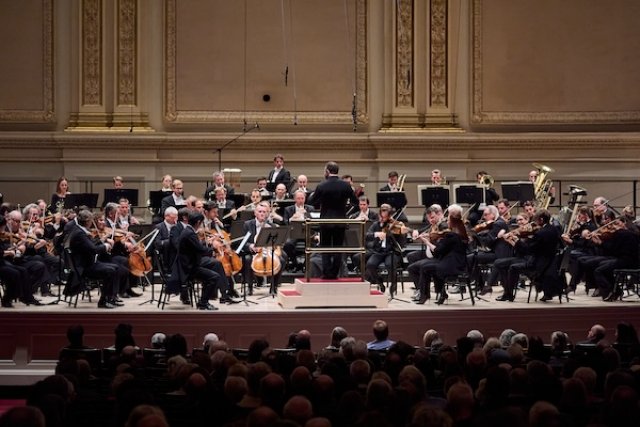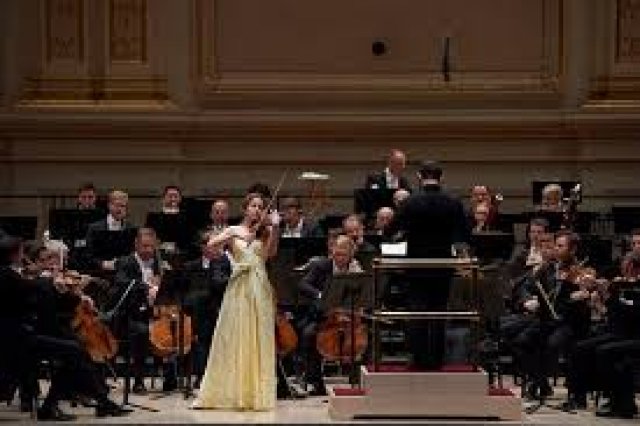Berlin Philharmonic Rocks Carnegie Hall
Kirill Petrenko Brings Fresh Ear to Music
By: Susan Hall - Nov 20, 2024
The Berlin Philharmonic completed a three-day visit to Carnegie Hall in New York. The world’s greatest orchestra and its greatest conductor, Kirill Petrenko, did not disappoint. The programming combined an anniversary (the 200th birthday of Anton Bruckner), with fresh visits to favorites like Anton Dvorak’s 7th Symphony and a Violin Concerto by the film composer Erich Korngold.
Jascha Heifetz premiered the violin concerto in St. Louis. The audience received it with wild enthusiasm. Critics complained. At Carnegie, the Norwegian violinist Vilde Franng was captivating as she left the delicious schmaltz to the orchestra and danced over the seldom-heard and surprising top of her instrument’s registers with often deep feeling and always with a precise joy.
Sergei Rachmaninoff’s Isle of the Dead was inspired by a painting by Swiss symbolist Arnold Böcklin . Copies of the painting decorated every German home in the early twentieth century. Yet Rachmaninnoff was inspired by a black and white print. Synesthesiologists may find the composition black and white, like Eric Satie’s work. The drive here are waves which propel a boat oared by Charon and a mysterious monk. The orchestra and conductor physically move in waves and send out music that carries the listener to and fro. You also get a feeling of the oars in the water, as the boat goes toward the island and then returns, having delivered a dead body.
Curiously Rachmaninoff would say after he finally saw the painting in color that he would not have composed the piece had he looked at it earlier. (A version is at the Metropolitan Museum of Art).
The Dvorak Seventh Symphony had the kind of mass that would become central to the performance of Anton Bruckner’s Fifth Symphony. Cellos and basses opened the first movement, the woodwinds created pastoral beauty in the second. The first and second violins had a delightful back and forth. Precision combined with a dancing pulse.
Bruckner is a composer you have to give yourself over to and the Philharmonic clearly invites this response. Few can respond to all the threads Bruckner offers, in the flute, oboe and clarinet soloing, and the strings together. Yet the mass of the form, which is impelled forward by ever-changing rhythmic combinations and intricate counterpoint, invites us to commune with the music. (The concert is available to stream on WQR).
Bruckner is an intellectual. His work is fastidiously plotted. It is complex. Yet the sheer beauty of many passages and the frequently changing rhythms, particularly as created by the Philharmonic, make it an exciting listening pleasure.
The Berlin Philharmonic wants to be a symphony orchestra for the world. During their New York stay, some orchestra members went over to the LaGuardia High School for the Performing Arts and talked music with high school students. This great orchestra is the perfect place to become entranced with music.


